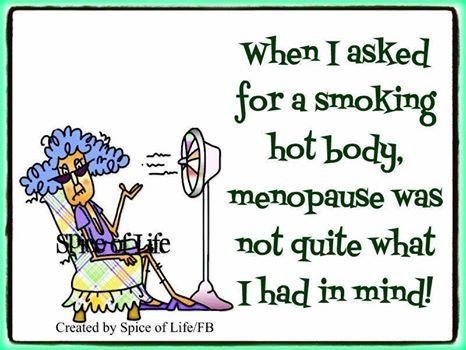Menopause Myth-Busting: Separating Fact from Fiction
Menopause is a natural transition, yet it remains surrounded by misinformation that can make it harder to navigate.
Let’s break down the most common myths and set the record straight with science-backed facts.
❌ Myth 1: Menopause Means the End of a Healthy, Enjoyable Life
✅ Truth: Menopause is not the end—it’s a new beginning. While it brings physiological changes, it also offers opportunities to prioritize health, longevity, and personal fulfillment. With proper support (hormonal, lifestyle, and medical), many women feel more empowered and in control of their well-being than ever before.
❌ Myth 2: Hot Flashes and Night Sweats Are Inevitable and Must Be Endured
✅ Truth: While vasomotor symptoms (VMS) like hot flashes and night sweats affect 75–80% of menopausal women, they are not something you simply have to “put up with.”
Evidence-based treatments, including menopausal hormone therapy (MHT), non-hormonal medications (like SSRIs or gabapentin), and lifestyle interventions (such as cooling strategies and stress management) can significantly reduce their frequency and severity.
❌ Myth 3: Hormone Therapy is Too Dangerous to Consider
✅ Truth: The fear of hormone therapy (HT) is largely based on outdated interpretations of the Women’s Health Initiative (WHI) study from 2002. Updated analyses show that for most healthy women under age 60 or within 10 years of menopause onset, HT significantly reduces symptoms, supports bone and cardiovascular health, and does not increase overall mortality risk.
➡ Key takeaway: The decision to use HT should be individualized and made through shared decision-making with your clinician.
❌ Myth 4: Menopause Only Affects Your Reproductive System
✅ Truth: Menopause is a whole-body event that affects metabolic function, cardiovascular health, brain health, and bone density.
Estrogen plays a vital role in:
Regulating insulin sensitivity and metabolism
Maintaining brain function and cognitive clarity
Protecting bones from osteoporosis
Supporting heart health by reducing arterial stiffness
Ignoring menopause-related changes can increase long-term health risks. This is why proactive healthcare strategies, including lifestyle modifications and medical interventions, are critical.
❌ Myth 5: There’s Nothing You Can Do to Prevent Menopausal Weight Gain
✅ Truth: While hormonal shifts make weight management more challenging, they don’t make it impossible.
The key is metabolic adaptation through:
Strength training to preserve muscle mass
Prioritizing protein intake to support metabolic function
Balancing blood sugar through strategic carbohydrate consumption
Addressing sleep, stress, and gut health, all of which play a role in midlife metabolism
And maybe even considering the additional of pharmaceutical options for weight management for weight regulation.
The Bottom Line
Menopause is not a disease—it’s a transition. With the right tools, education, and medical support, you can thrive in midlife and beyond. If you have concerns about symptoms or want to discuss evidence-based treatment options, our team is here to guide you.





